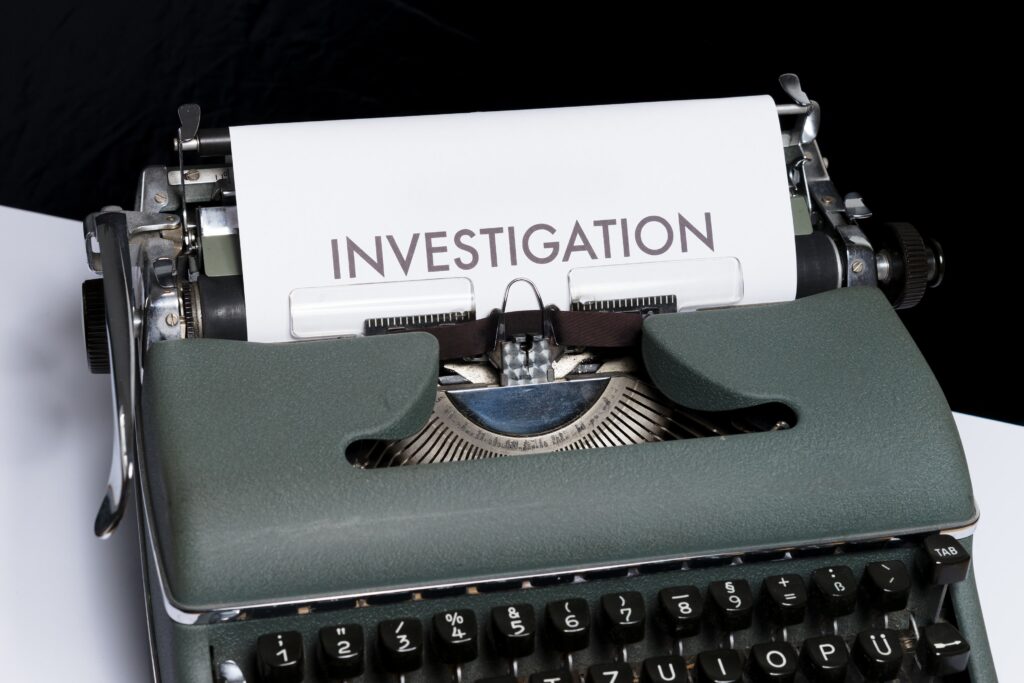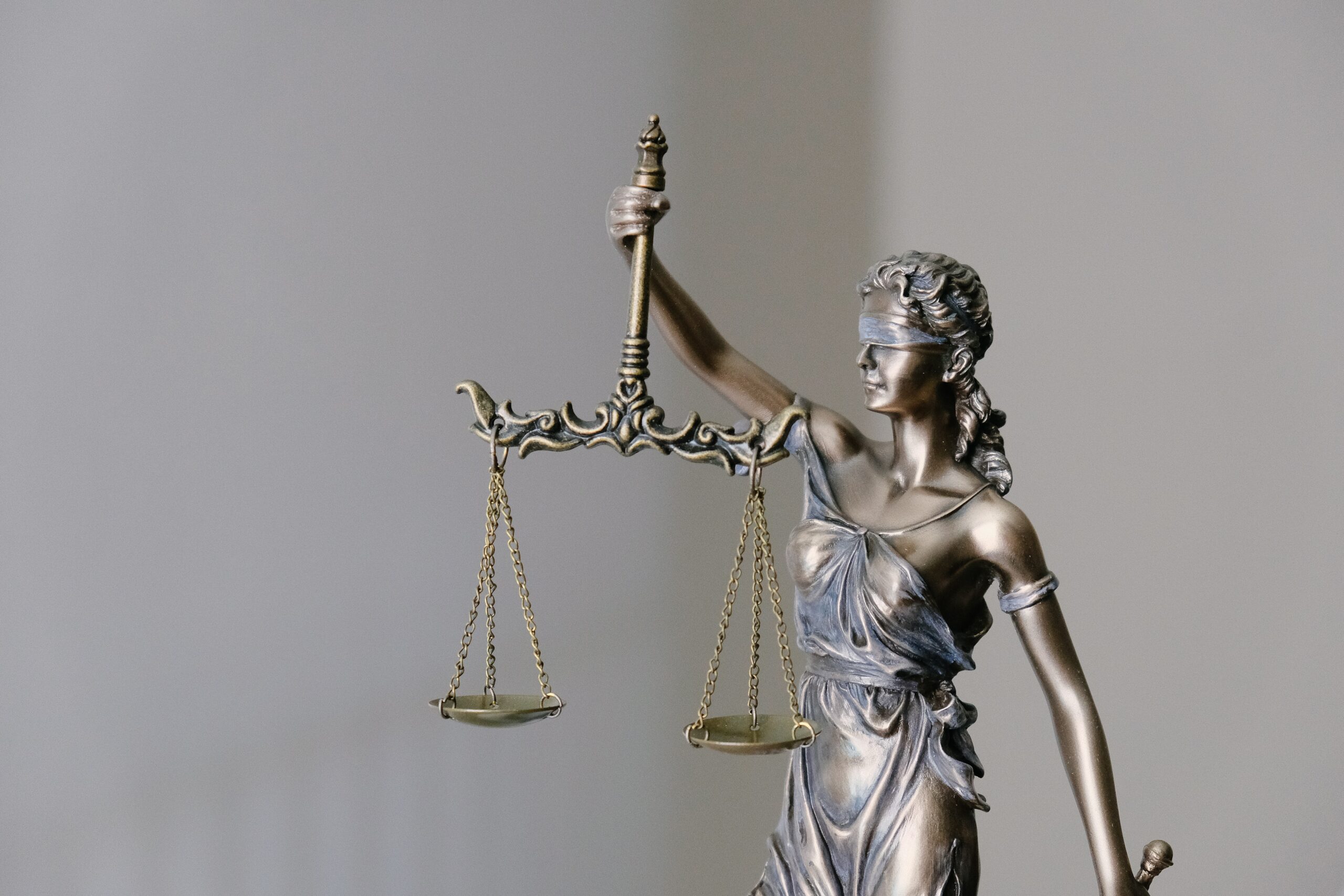Introduction
Some few days ago, news broke that the Department of State Service (DSS) in Nigeria brought in the acting chair of the Economic and Financial Crimes Commission (EFCC) for questioning over some allegations of financial misconduct.
I first saw the news (like other news) on the Whatsapp status of some friends. The comments of two of my friends were disturbing to me. They expressed their happiness at the arrest of the chairman (Ibrahim Magu); however, the reason for their happiness left much to be desired.
They hated the fact that Magu and his team at the EFCC were arresting and prosecuting yahoo boys (internet fraudsters). To them, it was a sigh of relief. They consider the EFCC’s indictment of internet fraudsters as witch-hunting. ‘Why not let those boys be’
These comments reminded me of many discussions I have had with people about internet fraudsters. Many will admit that internet fraud is bad but refuse to blame those who do it. They come up with lots of reasons why we should ‘understand’ and ‘empathize’ with those who do it. Some will tell us to blame the government who did not provide employment. Others will tell us to focus on the crimes of those in government rather than sweating over the ‘little’ crimes of these ‘boys.’
This attitude is so prevalent that you can hardly get the average Nigerian youth to admit without qualification that internet fraudsters are criminals (full stop).
Should we empathize with criminals?
Justification, Explanation, and Crimes
Let us take a brief look at some of these justifications cum explanations that people offer in defense of internet fraudsters
What about the politicians
One of the arguments that these people offer in defence of internet fraudsters is that the politicians themselves are criminals. They see it as hypocritical for government agencies to go after criminals when the government itself is filled with criminals who steal in billions.
This is a faulty either-or argument. The argument assumes that we either condemn the internet fraudsters who steal in the millions or we condemn the government officials who steal in the billions and that these two are mutually exclusive. However, this is a faulty way of thinking.
The proper attitude for believers and those who care about the life of society is to condemn crime wherever we find it. Internet frauds are evil just as mismanagement of public funds is evil. The degree of a crime may affect the punishment that the criminal deserves but it does not change the fact of the crime. A crime is a crime whether it is a ‘big’ crime or a ‘small’ crime. The degree of a crime does not change the character of the crime.
When a man rapes a girl, he has committed a crime. It does not matter if another man on the next street raped three women. The ‘one-girl’ rapist is as much a rapist as the ‘three-women’ rapist. We do not justify the crime of the former because there is someone worse than him.
If a man kills the son of his neighbor, he is a murderer. It does not matter if there is another man who killed a whole family. They are both murderers.
The degree of punishment may differ but it does not change the fact that they are both murderers (rapists).
A sane society will exert its resources to arrest and punish both type of rapists and murderers. If one category of rapists or murderers are getting a free run, our response is not to use that to justify the other class. Rather, we should praise the law enforcement agencies for punishing one of the categories and then use all of our tools of advocacy to challenge them to punish the other. It is not an either-or but a both-and.
Therefore, when we see the EFCC arrest internet fraudsters, we should not justify or empathize with these criminals by pointing to other criminals. Rather, we should commend them for punishing this evil while challenging them to punish that evil.
Responsible Christians and citizens want to see punishment for all crimes. The justice system is not a mutually exclusive system where the arrest of one set of criminals mitigates the arrest of another set of criminals. I do not believe the reason why more politicians don’t pay for their crime is a lack of human resources. This is not a linear programming problem where we have to decide how to allocate scarce resources. There are enough law enforcement agencies in Nigeria to go round. Therefore, we should advocate for the punishment of all crimes – internet fraudsters and politicians alike.
Biblical Principle
Luke 12:47, 48: “The servant who knows the master’s will and does not get ready or does not do what the master wants will be beaten with many blows. But the one who does not know and does things deserving punishment will be beaten with few blows. From everyone who has been given much, much will be demanded; and from the one who has been entrusted with much, much more will be asked.
Mathew 11:21-22: “Woe to you, Chorazin! Woe to you, Bethsaida! For if the miracles that were performed in you had been performed in Tyre and Sidon, they would have repented long ago in sackcloth and ashes. But I tell you, it will be more bearable for Tyre and Sidon on the day of judgment than for you.
There are degrees of punishment but not a lessening of crime. Everyone who does things deserving of punishment will be beaten. Some will be beaten with few stripes, some with many stripes, but none with zero stripe. Even on the Day of Judgment, there are degrees of punishment but no sinner will go unpunished.

Hypocrites Galore
Related to this is the hypocrisy argument. If the government officials and agencies themselves are criminals, what right do they have to arrest and punish other criminals?
Hypocrisy is a bad thing but the hypocrisy of the actor does not determine the moral goodness of an action. Hypocrites do good things. While we condemn their hypocrisy, we cannot deny the goodness of their actions (if it is good).
If a Pastor excommunicates an adulterous man in the congregation, it is a good thing. You may be privy to information that the Pastor is also adulterous but his hypocrisy does not change the goodness of what he did. Even when his adultery becomes public knowledge and the ‘excommunicator’ becomes ‘excommunicated,’ it does not change the fact that he was right to excommunicate that adulterous man.
Take a company where a whistleblower helps to identify the fraud of the CEO. Even if months after we discover that the whistleblower himself is a criminal, it does not negate the fact that his expose of the CEO’s fraud was a good thing.
We can condemn people for their hypocrisy without turning their good deeds into evil deeds. The government is doing a good thing to bring internet fraudsters to book. They might be hypocrites but in this very action of punishing crime, they are doing a good thing. Our perception of their private crime does not turn punishing of crime into a bad thing. The judge may be a sexual pervert himself but at the point he sentences a rapist, he is doing a good thing.
We must clamor for the punishment of the pastor, whistleblower, government officials, and judge and condemn their hypocrisy but doing that does not take anything away from the goodness of their former actions.
EFCC and other law enforcement agencies may be hypocrites but their hypocrisy does not undo the goodness of their action.
Biblical Principle
Mathew 23:2-3: The teachers of the law and the Pharisees sit in Moses’ seat. So you must be careful to do everything they tell you. But do not do what they do, for they do not practice what they preach
Philippians 1:15-18: It is true that some preach Christ out of envy and rivalry, but others out of goodwill. The latter do so out of love, knowing that I am put here for the defense of the gospel. The former preach Christ out of selfish ambition, not sincerely, supposing that they can stir up trouble for me while I am in chains. But what does it matter? The important thing is that in every way, whether from false motives or true, Christ is preached. And because of this I rejoice.
The teachers of the law may be hypocrites but that does not take away from the goodness of their commands. Some may preach Christ out of envy and rivalry but that does not detract from the truthfulness of the gospel they preach.

Unemployment
Another category of argument is that people resort to crime because they don’t have a job. We can all agree that unemployment is a big problem in Nigeria.
The first problem with that is that large portions of those who engage in internet frauds are university students. If unemployment explains cybercrime, what about the 100 level kids or the SS2 and SS3 students who engage in it? Are they also unemployed?
Even if we agree that unemployment is the major cause of cybercrime, there are still problems with the argument. First, we see many Nigerians without white-collar jobs who are doing things and achieving strides that people with white-collar jobs are admiring. Many of them are learning digital skills and becoming freelancers. Some of them are starting small-scale enterprises. Those who want to climb the corporate ladder are improving their skillset to become employable. Others are taking up jobs that are inferior to their ‘dream job’ to build their skills and ‘do something with their lives’
To assume that the only alternative to high unemployment is crime is to ignore the thousands and millions of Nigerians who are doing better things with their lives without a salary or a three-piece suit. If these ones could choose a path of dignity and hard work, why should others choose a path of crime?
Secondly, most internet fraudsters are not people who are only looking to get by in life; they are greedy people who want a lifestyle they can’t afford. Let us do this experiment if you don’t agree with me. Walk up to a yahoo boy you know and offer him or her (unfortunately) a teaching job at a nearby secondary school that will pay him #50,000 per month. Offer him the option to choose between the job and his life of crime. You know the result. That result is proof that unemployment (in and of itself) cannot be the explanation for crime. If someone chooses the less glamorous options for a life of crime, then unemployment cannot be the explanation for his choice.
People are responsible for their choices. We cannot deny the influence of external factors but we cannot make those factors determinative. The law assumes the personal responsibility of every moral agent. You are responsible for your actions (and crimes). The law does not deal in causes and effects but in moral accountability.
This is not to overlook the responsibility of the government. However, a failed government cannot be a justification for crime. Irresponsible citizenry is not the solution to an irresponsible government. Remember, it is a both and, not an either or. We can pursue responsible government and responsible citizenship at the same time.
Biblical Principles
2 Corinthians 5:10: For we must all appear before the judgment seat of Christ, so that each of us may receive what is due us for the things done while in the body, whether good or bad.
Proverbs 6:30-31: People do not despise a thief if he steals to satisfy his hunger when he is starving. Yet if he is caught, he must pay sevenfold, though it costs him all the wealth of his house.
Everyone is responsible to God for his actions whether they are good or bad. No one will be able to claim that external circumstances compelled him or her to an evil path. When a thief is caught, even though he stole because he was starving, he will pay back seven fold even if it will cost him all the wealth of his house.

Economic Arguments
These class of people argue that yahoo boys contribute to the economy. They buy goods and services that add to our GDP, they claim. I do not know of any developed nation that grew out of internet frauds.
The kind of economic advancement that leads to low unemployment does not come through crime. The nations that internet fraudsters steal from did not get to the place of global envy they are because their citizens embraced a life of crime. Rather, they embraced the long road to economic prosperity – commerce, hard work, and entrepreneurship.
Crime does not foster commerce, hard work, or entrepreneurship. It fosters indolence, pride, wastefulness, and debauchery. Those are not the kind of attributes you need to build a prosperous nation. It never was. It never will be. A nation that normalizes crime and fraud (for whatever reason) is doomed to failure.
Biblical Principles
1 Thessalonians 4:10-11: Yet we urge you, brothers and sisters, to do so more and more, and to make it your ambition to lead a quiet life: You should mind your own business and work with your hands, just as we told you.
Proverbs 22:29: Do you see a man skilled in his work? He will stand before kings; He will not stand before obscure men.
Hard work, industry, and skillfulness are biblical virtues. They are the kind of virtues that extol a nation.
Rehabilitation, Deterrence, and Punishment
Every crime deserves punishment. The primary concern of justice is not the rehabilitation of criminals or the deterrence of others from crime. Justice is about righteousness. Lady Justice concerns herself only with the upholding of the law.
The man who commits crime deserves punishment for his crime and that is the responsibility of the law enforcement agencies. Internet fraudsters, corrupt CEOs, and unscrupulous government officials must have a date with Lady Justice.

The Reputation of a Nation
Our reputation is going down the drain by the day. We have started seeing job adverts that specifically request that Nigerians do not apply. We have a bad press in the international community for crime. Some clients do not want to work with freelancers from Nigeria.
Thankfully, there are people all over the world who still fly the flag high; however, the bad press is threatening to overshadow all the good they do because people believe bad news more than good news.
If we get to the point where our country is synonymous with crime and fraud, then our hope for future economic development and prosperity is at stake.
The words of Solomon should be a gentle reminder: Righteousness exalts a nation, but sin condemns any people (Proverbs 14:34). We cannot empathize with criminals while the reputation of our nation is dragged in the mud and the future of our children are mortgaged.

A Gospel for Criminals
However, there is a gospel for criminals.
While the state is the instrument of God to reward good and punish evil (Romans 13), the ultimate judgment is God’s. Every sin is primarily a sin against God. David after committing adultery and murdering an innocent man declared that he has only sinned against God (Psalms 51:4).
The criminal might face Lady Justice on this earth but he has bigger issues ahead. He will stand before a holy God who will judge his sins and condemn him for his righteousness. (Hebrews 9:27). This God is omnipotent, omnipresent, and omniscient. He knows all our sins (Jeremiah 23:23), we cannot hide from him (Psalms 139:7), and he has the power to judge us for our sins (James 4:12). He will judge every single sin and no one will escape from his hands.
But that God in love and mercy sent his Son to this wicked world filled with criminals to lay down his life for those criminals (John 1:10-11, 3:16). He chose to punish in Christ the sins of all those who trust in him. Instead of bearing the penalty for their sins, God laid it upon Christ. He made him who knew no sin to be sin for believers so that they can become the righteousness of God in him (2 Corinthians 5:21). Now, all those who believe in Christ can have forgiveness for all their sins. (Acts 13:39).
That gospel is also for criminals. It does not matter how many people you have defrauded, raped, or killed, if you come to Christ, he will forgive you for all your sins. Lady Justice may catch up with you (if it has not) and the earthly authorities may punish you (if they have not). However, nothing that Lady Justice can do to you can compare to what God will do if you perish in your crimes.
Nevertheless, if you trust in the finished work of Christ on the cross, he will forgive you and cleanse you of all unrighteousness. (1 John 1:9); he will replace your filthy rags with his robes of righteousness (Zechariah 3).
Your records of sin will be blotted out. (Isaiah 43:25) You will stand perfect in Christ on the Day of Judgment (John 3:18). You will receive the rewards of the saints. You will reign together with God for all eternity. You will be a partaker with God in the new heavens and the new heart, the home of righteousness. (Revelation 21, 22)
This gospel is also for all of us. You may not be a criminal but you are a sinner. You may not sin against Nigeria’s constitution but all your life you have sinned against God (Romans 3:23). In the courtroom of God, there is no distinction between criminals and sinners. You need to come to Jesus to receive forgiveness for your sins so you can escape from the wrath to God and be united with his son.

Conclusion
We can seek to understand the external factors that make people do what they do but we must never use those as justification for crime. Every man is accountable for his sins. We must never drown that personal responsibility with talks of empathy. Rather, we must proclaim the gospel of Christ to the criminals – the only gospel that can save them.



